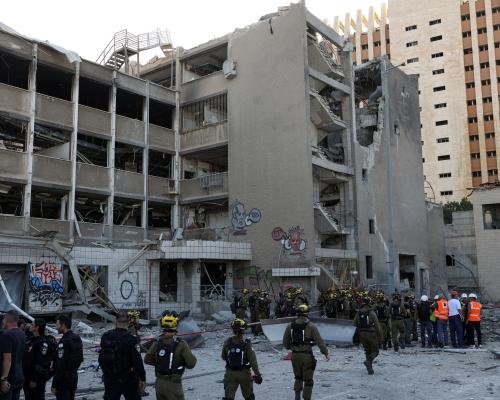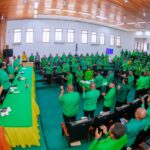Russian President Vladimir Putin has strongly defended Iran’s right to pursue nuclear energy for peaceful purposes while warning of renewed instability in Ukraine if the country fails to adopt a neutral stance and recognize Russia’s territorial claims.
In a wide-ranging interview with Sky News Arabia, Putin said that Moscow remains opposed to the spread of weapons of mass destruction, and emphasized that international inspections have shown no evidence of Iran attempting to build nuclear weapons.
“We are fully committed to non-proliferation,” said Putin, referencing the findings of the International Atomic Energy Agency (IAEA), which has repeatedly confirmed the peaceful nature of Tehran‘s nuclear program. “Iran has the right to develop nuclear energy for civilian use, and Russia is ready to assist in that process,” he added.
Putin also pointed to Iran’s fatwa — a religious decree issued by Supreme Leader Ayatollah Ali Khamenei — that prohibits the development of nuclear weapons. “This is not just political rhetoric; it is a serious moral and religious commitment that must be respected,” he said.
The remarks follow renewed tensions in the Middle East, after Israel launched airstrikes on June 13 targeting Iranian nuclear and military facilities. Iran responded with retaliatory strikes, prompting international concern over a potential regional war.
According to Putin, Russia had warned Israeli officials in advance that “Iran is not pursuing nuclear weapons.” He urged both nations to pursue diplomacy, stating that escalation benefits no one. “Regional stability must be achieved through dialogue and cooperation,” he said.
Turning to the ongoing Russia–Ukraine war, Putin reiterated a series of uncompromising demands. Chief among them is that Ukraine adopt a status of military neutrality and commit to remaining outside alliances like NATO. He also called for Kyiv to abandon any nuclear ambitions.
Putin emphasized that a permanent settlement to the war depends on Ukraine recognizing the results of referendums held in four Russian-occupied regions — votes that the West and the United Nations have dismissed as illegitimate. “To ignore these outcomes is to invite the possibility of renewed armed conflict,” Putin warned.
He also revisited the Istanbul peace talks of 2022, claiming that a settlement was within reach before “external actors” allegedly pressured Kyiv to abandon the agreement. “Ukraine is being used as a geopolitical tool against Russia,” he said. “The Ukrainian people deserve better than to serve the agendas of foreign powers.”
Also Read; Retained Earnings Tax Sparks Heated National Debate
Analysts say Putin’s interview signals a twofold message. On one hand, Russia wants to present itself as a rational actor that respects international law when it comes to nuclear non-proliferation — especially in contrast to perceived Western hypocrisy. On the other hand, Moscow remains unwavering in its demands over Ukraine, including territorial recognition and exclusion from Western military blocs.
By aligning itself with Iran’s peaceful nuclear narrative and invoking religious principles like the fatwa, Russia also strengthens its image in the Muslim world and among countries weary of Western foreign policy.
Meanwhile, Ukraine and its allies have rejected Moscow’s demands. President Volodymyr Zelenskyy insists that Ukrainian sovereignty must include the recovery of all territory occupied by Russia since 2014, including Crimea.
The path to peace in both Ukraine and the Middle East remains fraught. Yet, with regional tensions rising and geopolitical alliances shifting, Putin’s latest remarks may be a signal — not just of Russia’s stance, but of how it wants the world to see its role in global affairs.







